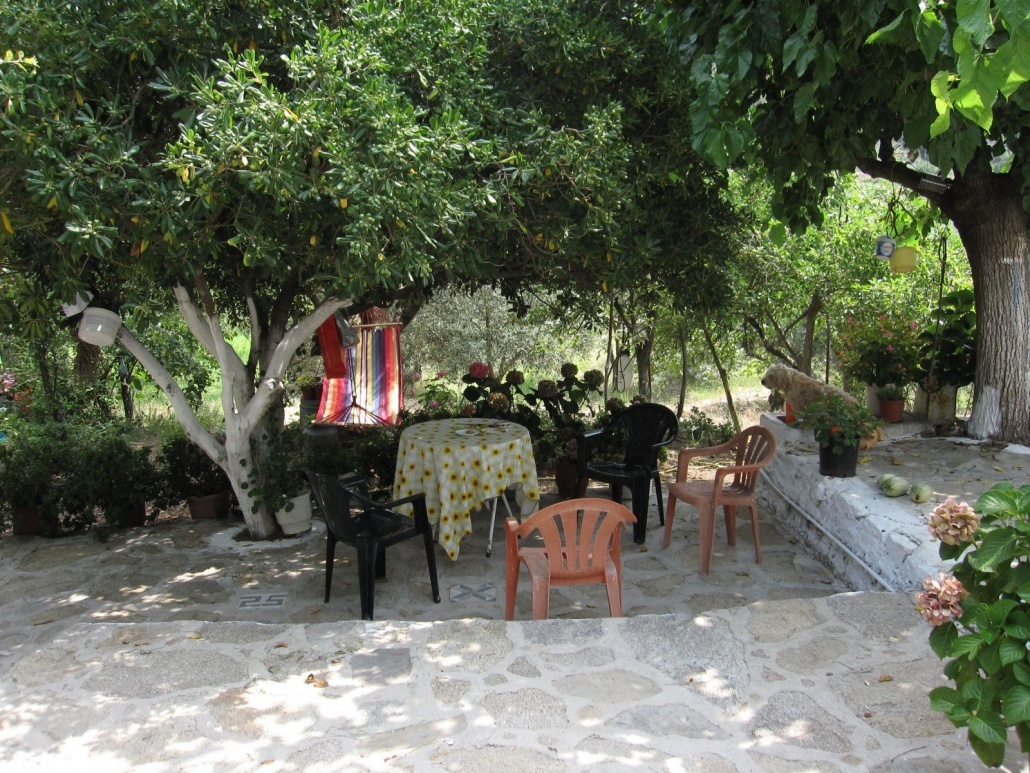
Διαβάστε την ελεύθερη πτήση στα ελληνικά.
For one there is the archaeology of tangible civilization. But there is also another kind: the one that locates the intangible treasures, the elaborate human achievements that made it through the centuries, for us to rediscover them today – all it takes is to look beyond the mere objects. All it takes is to look at the people and their practices. Inside the Ikarian courtyards – the courtyards of our childhood’s miracles – one can watch the miracle of hospitality unfold before his eyes.
In short: This summer I visited almost thirty houses all around the island for a research project. Even if I went there trying to introduce myself and the purpose of my visit, I didn’t have any time for explanations (who sends me and why). Without further ado, I found myself around the people of the house: almost automatically, they gave up whatever they were doing or discussing, only to offer me something to drink, to eat, and a comfortable seat beside them. The only think I managed to say beforehand was “Hello, how are you?”
Sometimes I went by myself, other times with company. The reaction was always the same. A chair pulled out from the kitchen table, or a seat on the mantel. Under the vine tree, surrounded by pots full of colorful and fragrant flowers. Clay pots, plastic pots, or even made with iron sheets. A little further, the garden and the sounds of the house animals (usually some chickens or a goat) mixing with the sounds of cicadas, and of leaky exhaust pipes from the street. Textures both traditional and of modern folklore: Ikarian stones and plastic chairs. Cement floors and old wooden furniture. Automated watering systems and ancient garden tools. Hammocks for the kids and the grandkids visiting from Athens and bikes with training wheels for the great grandchildren. All the generations and their habits coexist in the yard and all have their own way of welcoming you.
Most important of all, the smiles and that word “Welcome!” as soon as they laid eyes on you. And we were strangers in their houses. Sudden and unannounced. Without calling first, of ringing the doorbell. Intruders in their personal space. On that same space with the railings, the hidden or not so hidden cameras and alarms that we try so hard to protect in our cities. For our own reasons. But, there, the people I met had themselves their own reasons to welcome the stranger, taming him. Well, no, the Ikarian hospitality is not unconditional and unruled. No, Ikaria is not an unwatched place. But, its border is not a tangible one, not even spatial (I have come to know that this Ikaria lives in Crete, in Athens, even in the US).
It’s the tradition that gets moved around, not without change, but instead, completely transformed – since what does not succumb to change is destined to die- from the depths of time to today. And this tradition makes us wonder about our own civilization and humanity, that have so much to say, but so little to do.
Elena Mamoulaki for ikariamag.gr








